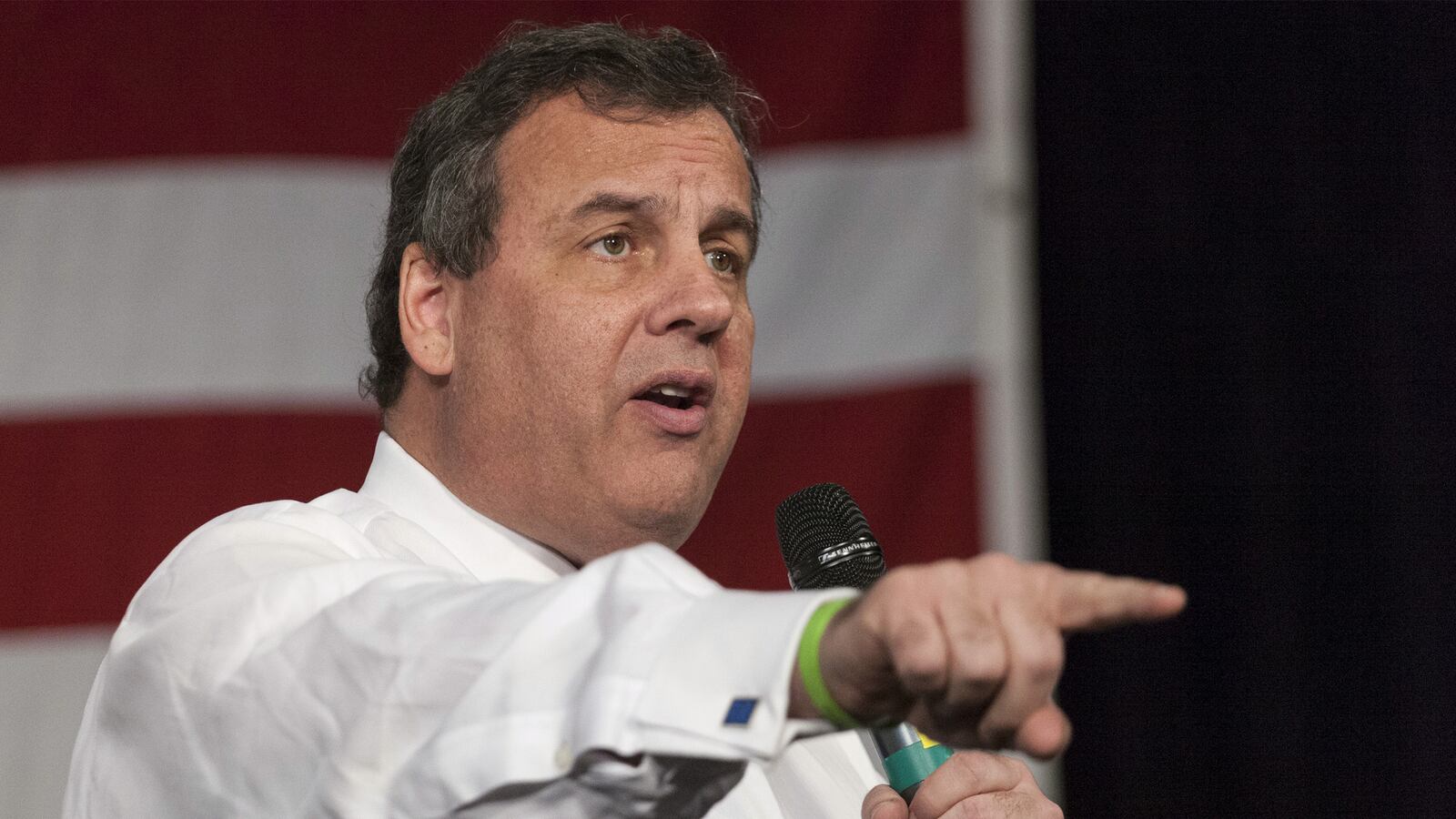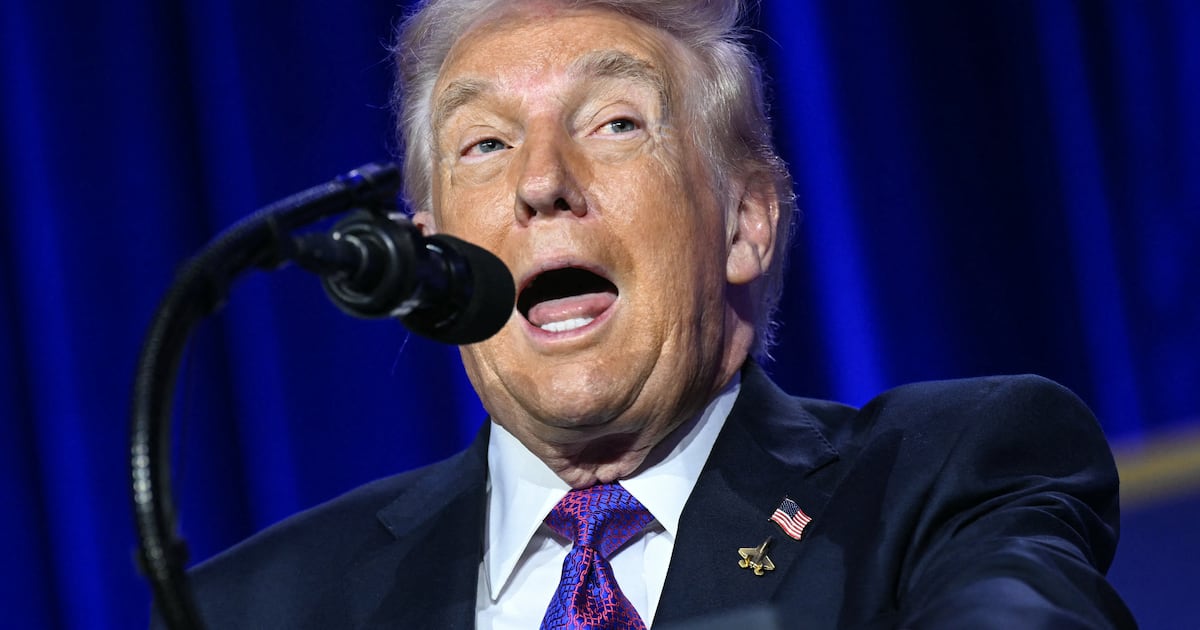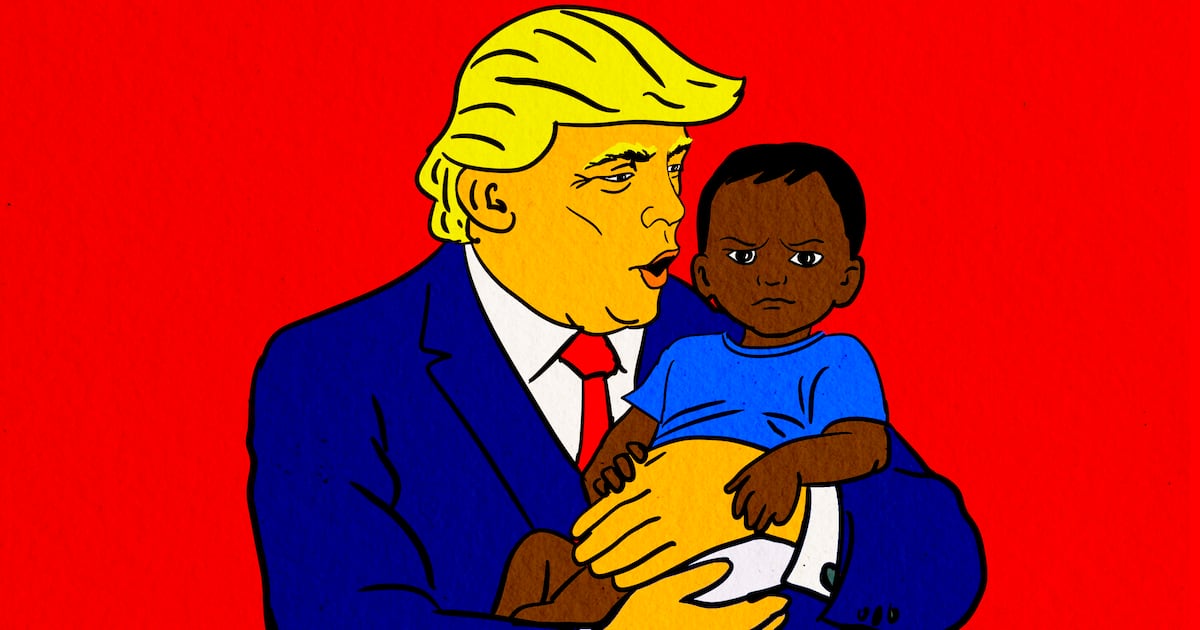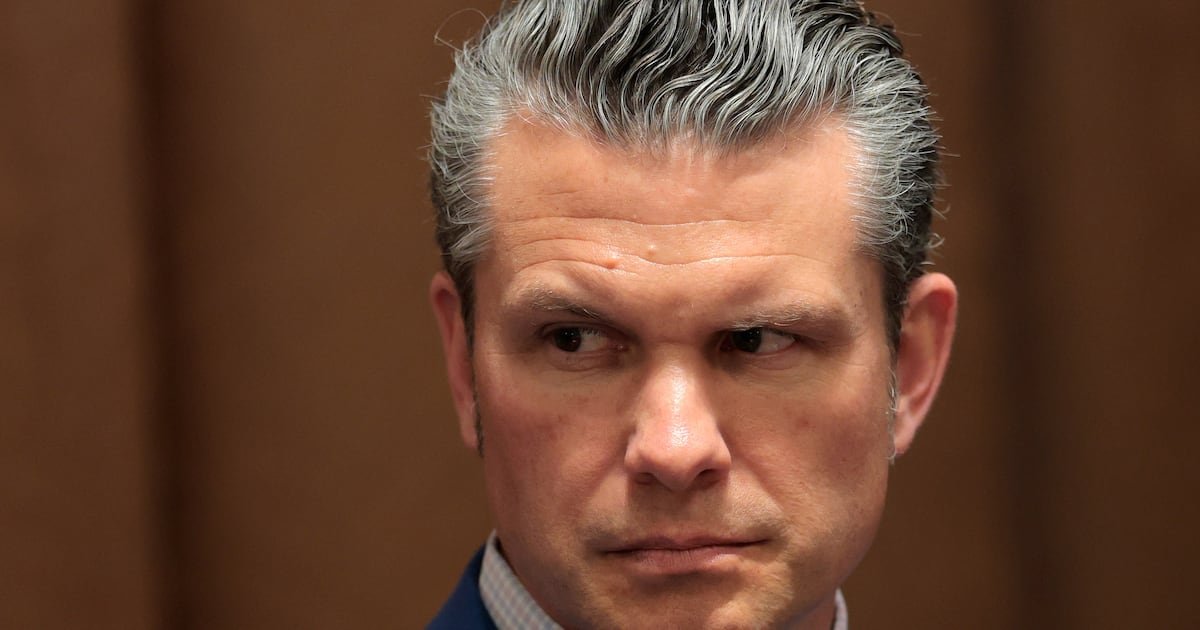In any presidential primary, but particularly one starring Donald Trump, it’s rare to discuss matters of substance.
It’s even rarer that such discussions could “drive the conversation,” in Washington-speak, or captivate the attention of millions of people. But Chris Christie managed to give a policy speech about drug addiction that went viral—an outcome usually reserved for videos of Drake dancing like a dad.
The New Jersey governor’s message of compassion for addicts is a politically expedient one—sending addicts to rehab rather than prison has become a popular issue among conservatives in recent years. It’s appealing to evangelical Republicans who believe in the concept of forgiveness and second chances, and to fiscal hawks who now realize the war on drugs is expensive and that providing addicts with treatment costs less than throwing them in a cell.
But to suggest that Christie, who has been relegated to Tuesday’s undercard debate, is talking about the issue only because of politics would ignore two decades’ worth of evidence that makes a different case: He really seems to care about this.
In 1996, Christie was a local lawmaker in Morris County, a flush northern New Jersey suburb that was learning an ugly lesson: Addiction, even to hard drugs, doesn’t discriminate by class.
The previous year, some 2,000 residents, 19 percent of them under the age of 24, had sought treatment for addiction, according to the state Department of Health. Nearly a quarter were on heroin. Worse, 3 percent of eighth-graders surveyed by the department admitted to having tried the drug in the previous 12 months.
“A lot of people think drugs are not a problem in Morris County,” Christie said at the time. “They are a problem, a big problem…We were all just one bad decision away from being where these children are.”
The county, with Christie, responded to the budding epidemic by taking control of the mismanaged juvenile detention center in town and installing an anti-drug program, led by Morristown Memorial Hospital and a rehab center called Daytop Village, in Christie’s hometown of Mendham.
Not long after the initiative was announced, Christie was kicked out of local government, but he remained on the board at Daytop Village until 2002, when he became the United States attorney for New Jersey.
That was when he met Craig Hanlon, a former crack cocaine addict who had recovered at Daytop and was, in 2002, in his first year at the Benjamin N. Cardozo School of Law and returning to the rehab center to speak.
Hanlon would later tell an audience at a gala fundraiser for Daytop, in 2013, that the day he met Christie, the future governor “reached out his hand and gave me the opportunity of a lifetime,” an internship in the U.S. attorney’s office. That, Hanlon said, was what led to his first job, in the Brooklyn district attorney’s office, and ultimately to him forming his own practice.
“My story is just one example, just one illustration, of the governor’s commitment to Daytop’s philosophy that treatment works, recovery happens, and every kid deserves a chance,” Hanlon said, tears in his eyes.
Christie and Hanlon embraced.
“If Craig told you a story tonight about a 16-year-old boy who was stricken with cancer,” Christie told the audience, “each and every one of you would say, ‘What can we do to make him better? What can we do to help save his life without judgment, without question, with assignment of blame?’ That’s where we need to get to in this society regarding substance abuse.”
Some, Christie said, would look at a boy like Craig was at 16—strung out on crack, in his words, and alone on the street—and say, “They get what they deserve.” But “this 16-year-old child stricken by this disease is not disposable,” Christie said. “His life is no less precious than the lives of my four children or any of your children, and it is salvageable, and if you doubt that for a minute, look at him.”
That line might now sound familiar to nearly 8 million people.
At Shooter’s Tavern in Belmont, N.H., on Oct. 30, Christie made a similar case for rehabilitation, this time using his mother as the vehicle for his lesson.
“My mother was a smoker, she smoked her whole life, she was addicted to nicotine,” Christie said. “She started when she was 16 years old, which was 1948, but by the time 1964 came, the surgeon general’s report came out and she was in her mid-30s, she knew that smoking was bad for you. And I’ll tell you, I watched her as a kid, growing up, she tried everything she could to quit, she had the gum, the patches, hypnosis. She tried everything. She couldn’t quit.”
Decades later when his mother was diagnosed with lung cancer, “no one came to me and said, ‘Don’t treat her, ’cause she got what she deserved,’” Christie said. “Yet somehow, if it’s heroin or cocaine or alcohol, we say, ‘Well, they decided, they’re getting what they deserved.’”
Christie argued that it is the pro-life position to advocate rehabilitation for those addicted to drugs and alcohol because, as he often says, “if you’re pro-life, that means you’ve gotta be pro-life for the whole life, not just the nine months they’re in the womb, right? It’s easy, it’s easy to be pro-life for the nine months they’re in the womb—they haven’t done anything to disappoint us yet!”
The speech was captured and uploaded by The Huffington Post, and as of this writing has 7,805,904 views. For contrast, the video of Trump announcing his campaign for the presidency, posted four months ago, has 1,593,096 views.
Beyond the touching anecdotes, Christie’s campaign points to a list—just over a page long—of things he’s done in office to champion his cause. He expanded drug courts, which put “first time, nonviolent offenders” into treatment rather than prison. In 2014 he implemented a program to provide law enforcement in each New Jersey county with Narcan, a heroin antidote for overdose victims. The same year, he visited Jersey City, with Nancy Pelosi in tow, for a ribbon-cutting ceremony at a facility to provide drug treatment, transitional housing, and employment assistance. He founded a task force, called Facing Addiction, which has been successful in creating programs to help addicts and those recovering, like an emergency response system for survivors of opioid overdose. He signed a so-called Good Samaritan bill, which legally protects those who may be in violation of the law if they call 911 to help an overdose victim.
The list of points on Christie’s record on drugs that his critics take issue with is much shorter.
Christie opposes legalizing marijuana and says he would enforce the federal laws banning it if he were president, a position that those in disagreement—including the American Civil Liberties Union—say contributes to racial discrimination in New Jersey and beyond. The ACLU says that if Christie wants to end the war on drugs, as he claims he does, he should decriminalize marijuana, which people of color are disproportionately prosecuted for. “The governor’s approach to the failed war on drugs is another example of his lip service to civil liberties,” the group said in a 2014 report, which gave him a grade of D+.
“If you listen to how he talks about marijuana, it seems to contradict the rest of his rhetoric on addiction,” said Jay Lassiter, a liberal activist and recovered addict based in New Jersey.
Lassiter said he was happy Christie was talking about drug addiction on a national stage but questioned his motives. “It’s his views on people who take medical cannabis that make me suspicious,” Lassiter said.
Medical marijuana is legal in New Jersey thanks to Christie’s predecessor, Jon Corzine, but critics say Christie has made obtaining it unusually difficult. According to The Washington Post, Christie’s program “is considered one of the most restrictive” and expensive in existence. Six years after medical marijuana became legal, New Jersey has just four dispensaries.
Lassiter complains, too, that receiving any kind of treatment in New Jersey is hard for addicts and that Christie could do more—and talk less—to fix the problem. But when a South Jersey rehab center announced, this month, that it would be forced to lose half of its beds, the Christie administration responded by pointing out that it had offered to help, but the help was refused.
“I’ve always admired his political stagecraft,” Lassiter said. “He’s got a deft touch. But the real nitty gritty of recovery and dealing with the underlying causes of drug addiction is not bumper-sticker worthy.”
That may be true. But it’s also true that almost 8 million people listened to Christie describe, in heartbreaking detail, the lonely death of his friend who succumbed to addiction in a hotel room, next to an empty bottle of vodka and an empty bottle of Percocet. It’s not such a leap to think that a similar audience could tolerate hearing about, or in fact have personal experience with, situations much more gruesome.
“I’m not gonna begrudge that conversation getting started predicated on Chris Christie’s bullshit,” Lassiter said.
The onslaught of Republican candidates sharing personal stories about addiction might make the hardened cynic squint. Besides Christie there is Carly Fiorina, who announced during a debate that she had lost a child to addiction; Ted Cruz, whose half-sister died due to drugs; and Jeb Bush, whose daughter publicly struggled for years.
But if it seems like a lot of Republican candidates have been touched by addiction, that could be because a lot of Americans have been: 46,471 fatally overdosed in 2013 alone.
Christie seems to understand that, and he was talking about it long before the concept of a viral video ever existed.






